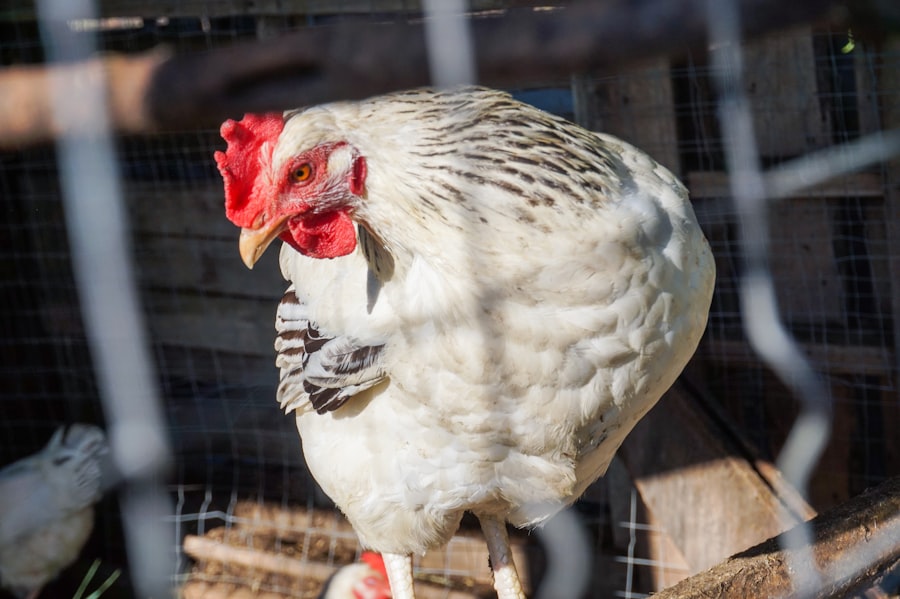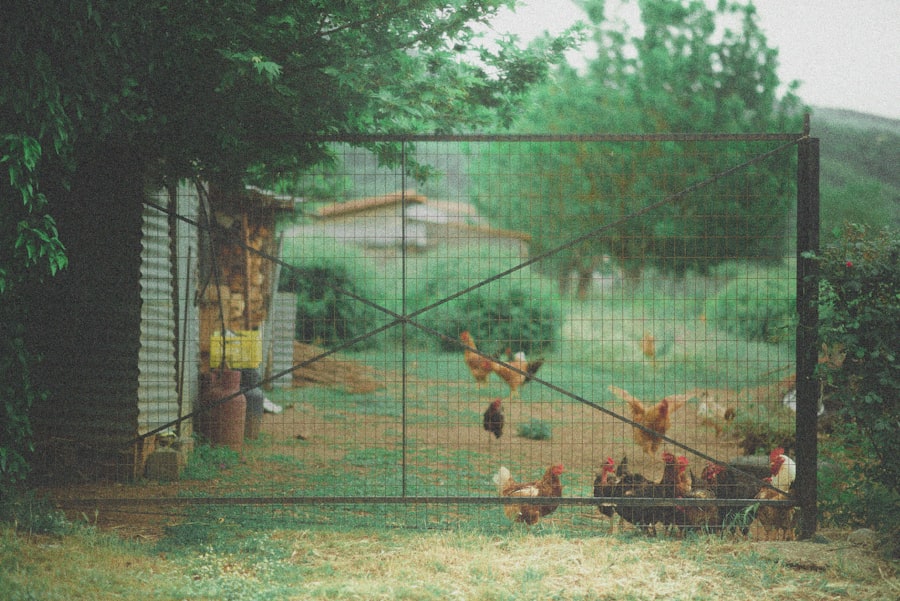Keeping chickens offers numerous benefits and challenges. Chickens provide a sustainable source of fresh eggs and potentially meat, contributing to food self-sufficiency. They also serve as natural pest control in gardens, reducing the need for chemical pesticides.
Chickens can be educational for children, teaching responsibility and animal care. Some people find chickens to have calming effects, potentially helping with stress reduction. Their droppings can be used as fertilizer, enhancing soil quality and plant growth.
However, chicken-keeping requires significant time, effort, and dedication. Proper housing, feeding, and healthcare are essential for the birds’ well-being. Legal considerations are important, as some areas have restrictions on keeping chickens.
Prospective chicken owners should research local regulations before starting a coop. Despite these challenges, many find keeping chickens to be a rewarding experience that connects them with nature and provides for their families. With adequate preparation and knowledge, chicken-keeping can be an enjoyable and sustainable practice.
Table of Contents
Key Takeaways
- Keeping chickens can provide a sustainable source of fresh eggs and meat, as well as natural pest control and fertilizer for your garden.
- Basic chicken care involves providing shelter, food, water, and regular health checks to ensure their well-being.
- Choosing the right breed of chicken depends on factors such as egg production, temperament, and climate adaptability.
- Setting up a chicken coop requires consideration of space, ventilation, nesting boxes, and predator-proofing measures.
- Feeding and nutrition for chickens should include a balanced diet of grains, protein, vitamins, and minerals to support their health and egg production.
The Basics of Chicken Care
Providing a Suitable Living Environment
A secure and spacious coop is essential for protecting your chickens from predators and providing adequate ventilation. The coop should also have nesting boxes for laying eggs and perches for roosting at night. Regular cleaning and maintenance of the coop are crucial to prevent disease and maintain a healthy environment.
Feeding and Nutrition
A balanced diet is vital for the overall health and productivity of your chickens. Provide a high-quality commercial feed specifically formulated for chickens, and supplement their diet with fresh fruits, vegetables, and grains. Ensure your chickens always have access to clean water to prevent dehydration and maintain their health.
Regular Health Checks and Preventative Care
Regular health checks and preventative care are crucial for keeping your chickens healthy. Monitor their behavior and appearance for signs of illness or injury, and provide vaccinations and deworming treatments as needed. Practicing good hygiene and sanitation in the coop can help prevent the spread of disease and maintain a healthy environment for your chickens.
Overall, proper care and attention to the needs of your chickens are essential for their well-being and productivity.
Choosing the Right Breed

When it comes to choosing the right breed of chicken for your flock, there are several factors to consider. Firstly, consider the purpose of keeping chickens – whether it’s for eggs, meat, or both. Different breeds are known for their egg-laying abilities, meat production, or dual-purpose qualities.
For example, popular egg-laying breeds include Rhode Island Reds, Leghorns, and Australorps, while meat breeds include Cornish Cross and Freedom Rangers. Additionally, consider the climate and environment in which you live. Some breeds are better suited to cold climates, while others thrive in warmer temperatures.
For example, cold-hardy breeds like Plymouth Rocks and Orpingtons are well-suited to colder climates, while Mediterranean breeds like Leghorns and Minorcas are better adapted to warmer climates. Furthermore, consider the temperament and behavior of different breeds. Some breeds are known for being docile and friendly, making them great choices for families with children, while others may be more skittish or aggressive.
It’s important to choose breeds that are well-suited to your lifestyle and preferences. Overall, it’s important to research different breeds and consider your specific needs and preferences when choosing the right breed for your flock. Whether you’re looking for high egg production, meat quality, or friendly temperament, there are numerous breeds to choose from that can meet your specific requirements.
Setting Up a Chicken Coop
Setting up a chicken coop is an essential aspect of keeping chickens, as it provides a safe and comfortable living environment for your flock. When designing a chicken coop, there are several key factors to consider. Firstly, ensure that the coop is spacious enough to accommodate the number of chickens in your flock.
A general rule of thumb is to provide at least 2-3 square feet of space per chicken inside the coop, as well as 8-10 square feet of outdoor space in the run. Additionally, the coop should be well-ventilated to provide fresh air circulation and prevent moisture buildup. Proper ventilation helps regulate temperature and humidity levels inside the coop, which is essential for the health and well-being of your chickens.
It’s important to install windows or vents that can be opened and closed as needed to maintain optimal airflow. Furthermore, the coop should be predator-proof to protect your chickens from potential threats such as raccoons, foxes, and birds of prey. This includes using sturdy wire mesh on windows and doors, as well as burying wire mesh around the perimeter of the coop to prevent digging predators from gaining access.
Moreover, provide nesting boxes for your hens to lay eggs in a quiet and secluded area within the coop. The nesting boxes should be filled with clean bedding material such as straw or wood shavings to provide a comfortable environment for egg-laying. Overall, setting up a chicken coop requires careful planning and consideration of the needs of your flock.
By providing a secure, well-ventilated, and predator-proof living environment, you can ensure the health and safety of your chickens while also promoting their productivity.
Feeding and Nutrition
Feeding and nutrition are essential aspects of caring for chickens, as a balanced diet is crucial for their overall health and productivity. When it comes to feeding chickens, there are several key considerations to keep in mind. Firstly, provide a high-quality commercial feed that is specifically formulated for chickens.
This feed should contain essential nutrients such as protein, carbohydrates, vitamins, and minerals to support the health and well-being of your flock. Additionally, supplementing their diet with fresh fruits, vegetables, and grains can provide additional nutrients and variety to their diet. This can include kitchen scraps such as leafy greens, carrots, apples, and grains like oats or barley.
However, it’s important to avoid feeding chickens foods that are toxic or harmful to their health, such as avocado pits or chocolate. Furthermore, ensure that chickens have access to clean water at all times to prevent dehydration and maintain their health. Water is essential for digestion, temperature regulation, and overall well-being of chickens.
It’s important to regularly clean water containers and provide fresh water to prevent contamination and promote good hygiene. Moreover, consider the specific nutritional needs of different stages of life for chickens. For example, chicks require a higher protein content in their diet to support growth and development, while laying hens may benefit from calcium supplements to support egg production.
Overall, providing a balanced diet with high-quality feed, fresh fruits and vegetables, clean water, and appropriate supplements is essential for meeting the nutritional needs of your flock and promoting their overall health and productivity.
Health and Wellness

Regular Health Checks
Regular health checks are important for monitoring the condition of your flock and identifying any signs of illness or injury. This includes observing their behavior, appearance, and egg production on a daily basis.
Good Hygiene and Sanitation
Practicing good hygiene and sanitation in the coop can help prevent the spread of disease and maintain a healthy environment for your chickens. This includes regularly cleaning the coop, removing soiled bedding material, and disinfecting surfaces to reduce the risk of bacterial or parasitic infections.
Preventative Care and Nutrition
Providing vaccinations and deworming treatments as needed can help protect your flock from common diseases and parasites. Consult with a veterinarian or poultry specialist to develop a preventative health care plan that meets the specific needs of your flock. Moreover, it’s important to provide proper nutrition and access to clean water at all times to support the overall health and well-being of your chickens. A balanced diet with high-quality feed, fresh fruits and vegetables, clean water, and appropriate supplements is essential for meeting their nutritional needs.
Practical Hands-On Experience
Practical hands-on experience is essential for learning how to care for chickens effectively. This includes learning how to handle chickens safely and confidently without causing them stress or injury. Additionally, gaining practical experience in feeding chickens can help you understand their nutritional needs and develop good feeding practices.
Furthermore, learning how to observe the behavior of your flock can help you identify any signs of illness or distress early on so that you can take appropriate action. This includes understanding normal behavior patterns such as eating habits, vocalizations, social interactions within the flock. Moreover, gaining practical experience in maintaining the coop can help you develop good hygiene practices such as cleaning the coop regularly removing soiled bedding material disinfecting surfaces when needed.
Overall practical hands-on experience is essential for developing the skills knowledge confidence needed to care for chickens effectively ensuring their health well-being productivity. In conclusion keeping chickens can be a rewarding experience that provides fresh eggs meat pest control companionship educational opportunities sustainable food source fertilizer however it requires time effort dedication proper housing feeding healthcare legal considerations however with the right knowledge preparation it can be fulfilling enjoyable experience both you family.
If you’re interested in learning more about how to build a chicken coop, you might want to check out this article on how to build a chicken coop with a trampoline. It offers a unique and innovative approach to creating a safe and comfortable space for your feathered friends.
FAQs
What is the purpose of a keeping chickens course?
A keeping chickens course is designed to provide individuals with the knowledge and skills necessary to successfully raise and care for chickens. It covers topics such as housing, feeding, health care, and general husbandry practices.
Who can benefit from a keeping chickens course?
Anyone interested in raising chickens, whether for personal or commercial purposes, can benefit from a keeping chickens course. This includes beginners who have never raised chickens before, as well as experienced individuals looking to expand their knowledge.
What are some of the topics covered in a keeping chickens course?
A keeping chickens course typically covers a range of topics, including choosing the right breed of chickens, constructing a suitable coop, providing proper nutrition, managing health and hygiene, and understanding the behavior and needs of chickens.
Are there any prerequisites for taking a keeping chickens course?
Most keeping chickens courses do not have specific prerequisites, as they are designed to accommodate individuals with varying levels of experience. However, a basic understanding of animal care and a willingness to learn are beneficial.
Where can I find a keeping chickens course?
Keeping chickens courses are offered by a variety of organizations, including agricultural extension offices, community colleges, and online education platforms. Local poultry associations and farm supply stores may also offer workshops or classes on keeping chickens.
Meet Walter, the feathered-friend fanatic of Florida! Nestled in the sunshine state, Walter struts through life with his feathered companions, clucking his way to happiness. With a coop that’s fancier than a five-star hotel, he’s the Don Juan of the chicken world. When he’s not teaching his hens to do the cha-cha, you’ll find him in a heated debate with his prized rooster, Sir Clucks-a-Lot. Walter’s poultry passion is no yolk; he’s the sunny-side-up guy you never knew you needed in your flock of friends!







